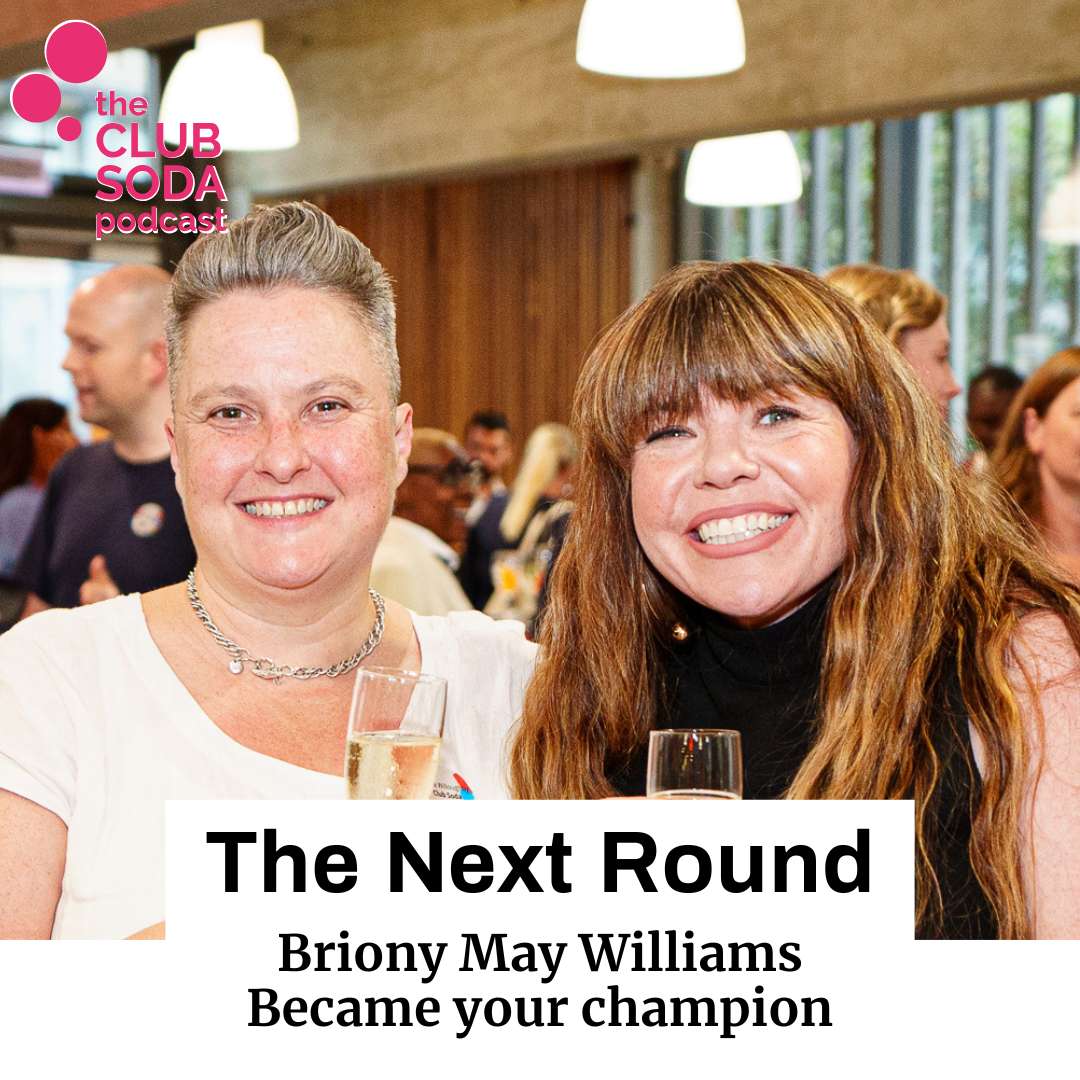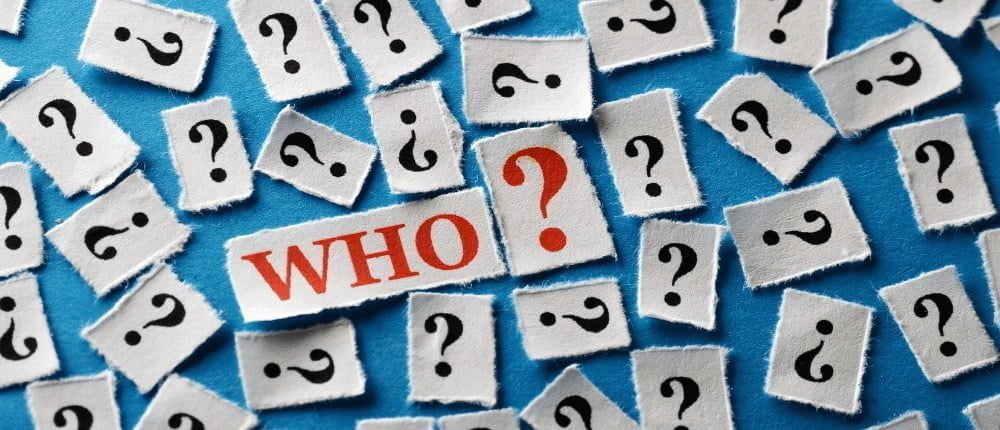
This website uses cookies to improve your experience. We'll assume you're ok with this, but you can opt-out if you wish. Read More
The Next Round: What happens after you change your drinking?

Whether we like it or not, if we’ve been drinking quite a lot for a long period of time, it’s likely that drinking has become a part of who we are. But if we’re not a drinker anymore, then who are we? That uncertainty regarding our identity without booze is a question many people who choose to go alcohol-free ask themselves.
In this week’s podcast, the discussion is chaired by Claire Davey, a PhD student at Canterbury Christ Church University. Claire’s guests are researcher and lecturer Dr Emily Nichols, head of student engagement David Gilani, and drinking coach Sarah Connolly. Mikey Moss from The Recovery Festival Bristol, and Hakeem Allen, founder of the Anti Racist Social Club also join the panel. This conversation was recorded in October 2021 as part of Club Soda’s Global Mindful Drinking Festival.
Claire Davey heads up this insightful conversation about who we are if we’re not a drinker any longer. Claire hosts our regular Meet the Scholar webinars where she discusses the latest research into alcohol and its impacts on us, our health, our wellbeing, and our environment.
In this podcast, featured in our recent online festival, Claire chairs the discussion on how our identity inevitably shifts when we give up drinking or cut down from being an excessive drinker. If we’re not a drinker anymore, it can be difficult to place ourselves in our friend group, family dynamic, or other similar social situations. Even if you didn’t think that being a ‘drinker’ described you, you might be surprised by how much drinking took up a lot of your time, and it may be that you now have space to do other things and shift your identity towards more positive hobbies. Our panel discuss how to navigate social situations, deal with buried trauma, handle uncomfortable new scenarios, and find a new perspective as your authentic self.
Dr Emily Nichols
I’m a non-drinker myself. And I used to see drinking as a very big part of my identity. Some of the work that I’ve done with newly sober women about how they might manage the transition from drinker to a kind of sober identity.
Emily
Dr Emily Nichols is an alcohol researcher and lecturer of Sociology at the University of York. Her research explores topics ranging from girls nights out to drinking during COVID-19. Her work deals intimately with how our identities are entwined with our drinking habits, and the shift that happens when we’re not a drinker anymore.
David Gilani
I think part of the challenge of it is that the options if you don’t want to drink are actually really quite wide, there’s a lot you can do, and so it’s almost harder to find another identity.
David
David is the Head of Student Engagement and Advocacy at Middlesex University, London. He works every day with students, but he gave up drinking when he was a student himself, at the age of 19. David works with supporting students who don’t drink, and is interested in the idea of identity and belonging within a higher education perspective.
Sarah Connolly
I coach groups and we not only look at identity after giving up drinking, but also the identity of where individuals want to go, who they want to be what’s possible for them how that they’re not a drinker, which is the aspirational peace that we really find so important in long term healing.
Sarah
Sarah Connolly is a Mindset Coach based in Brisbane, Australia. Sarah is really passionate about making talking about alcohol-free life aspirational and fun and gave up drinking herself in October 2019.
Mikey Moss
For me, not drinking, or the idea of stopping drinking felt like a death sentence for my personality or my social surroundings. Because all of my socializing was centered around people who drunk. Whereas now I’m confident and comfortable to be around people who drink and not feel the desire to drink.
Mikey
Mikey is the Communications & Publicity lead for ‘The Recovery Festival’ in Bristol. Mikey has been involved in The Recovery Festival for 18 months and is passionate about breaking down barriers and stigma that people face when they have problems with alcohol.
Hakeem Allen
If you’re constantly going to pubs, even if you’re not drinking, are you really going to be having a good time, ? Because the environment is focused around that substance that you chose to give up. So I think, I think community definitely plays a role. And whether it’s an online community or finding some friends that you can sort of go to different events for, then that’s going to be really important for you.
Hakeem
Hakeem is the Founder & Executive Director of The Anti-Racist Social Club, a registered charity that works to create spaces and resources for education and open dialogue with White people and non-Black POC about becoming anti-racist allies. He is a non-drinker by choice and is very passionate about men’s mental health.
Our podcast is available on all your favourite podcasting platforms, like Apple, Google and Spotify. Subscribe today and get all our latest news, interviews and drinks reviews. The Club Soda podcast is available wherever you subscribe to podcasts. Find your platform here.
Support the show.
This website uses cookies to improve your experience. We'll assume you're ok with this, but you can opt-out if you wish. Read More
| Name | Domain | Purpose | Expiry | Type |
|---|---|---|---|---|
| wpl_user_preference | joinclubsoda.com | WP GDPR Cookie Consent Preferences. | 1 year | HTTP |
| PHPSESSID | www.tickettailor.com | PHP generic session cookie. | 55 years | HTTP |
| AWSALB | www.tickettailor.com | Amazon Web Services Load Balancer cookie. | 7 days | HTTP |
| YSC | youtube.com | YouTube session cookie. | 55 years | HTTP |
| Name | Domain | Purpose | Expiry | Type |
|---|---|---|---|---|
| VISITOR_INFO1_LIVE | youtube.com | YouTube cookie. | 6 months | HTTP |
| Name | Domain | Purpose | Expiry | Type |
|---|---|---|---|---|
| _ga | joinclubsoda.com | Google Universal Analytics long-time unique user tracking identifier. | 2 years | HTTP |
| sbjs_migrations | joinclubsoda.com | Sourcebuster tracking cookie | 55 years | HTTP |
| sbjs_current_add | joinclubsoda.com | Sourcebuster tracking cookie | 55 years | HTTP |
| sbjs_first_add | joinclubsoda.com | Sourcebuster tracking cookie | 55 years | HTTP |
| sbjs_current | joinclubsoda.com | Sourcebuster tracking cookie | 55 years | HTTP |
| sbjs_first | joinclubsoda.com | Sourcebuster tracking cookie | 55 years | HTTP |
| sbjs_udata | joinclubsoda.com | Sourcebuster tracking cookie | 55 years | HTTP |
| sbjs_session | joinclubsoda.com | SourceBuster Tracking session | Session | HTTP |
| Name | Domain | Purpose | Expiry | Type |
|---|---|---|---|---|
| mailchimp_landing_site | joinclubsoda.com | Mailchimp functional cookie | 28 days | HTTP |
| __cf_bm | tickettailor.com | Generic CloudFlare functional cookie. | Session | HTTP |
| NID | google.com | Google unique id for preferences. | 6 months | HTTP |
| Name | Domain | Purpose | Expiry | Type |
|---|---|---|---|---|
| _ga_10XZMT03ZM | joinclubsoda.com | --- | 2 years | --- |
| AWSALBCORS | www.tickettailor.com | --- | 7 days | --- |
| cf_clearance | tickettailor.com | --- | 1 year | --- |
| VISITOR_PRIVACY_METADATA | youtube.com | --- | 6 months | --- |
Join Club Soda for 10% off your first order of drinks for UK delivery. Plus get our latest news and special offers for members to choose better drinks, change your drinking and connect with others.
If you get an error message with this form, you can also sign up at eepurl.com/dl5hPn